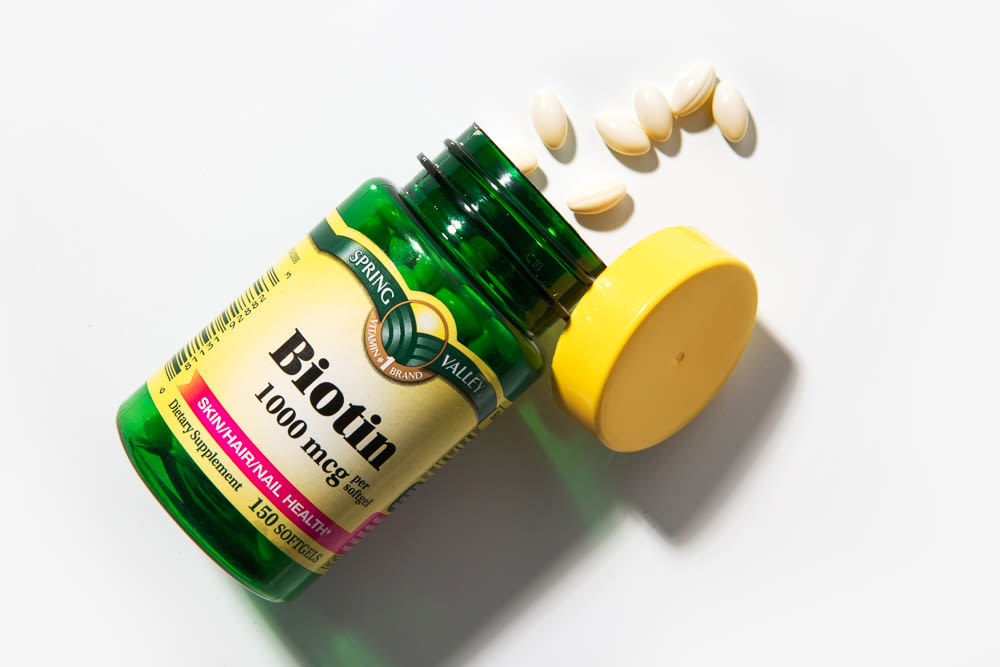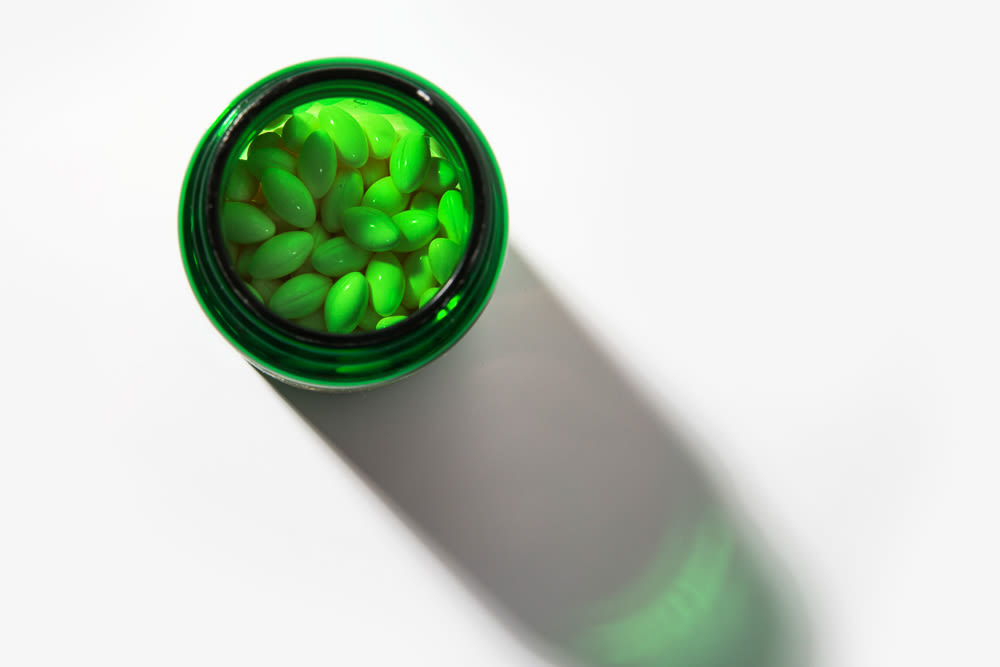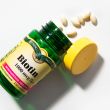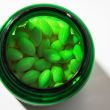If you’re in the market for Rapunzel-length hair, then you’re surely familiar with biotin—there are biotin-infused shampoos, biotin scalp treatments, and the ever-popular biotin supplements...quite honestly, they're hard to avoid. And they're intriguing as hell, all promising substantial hair growth that's thick and healthy.
Given its ubiquity, seems like a ripe time for a definition: Biotin (also known as vitamin B7 or vitamin H) belongs to the group of B vitamins. It’s found in foods like egg yolks, salmon, and leafy greens, and it’s also produced in our bodies from intestinal bacteria. Our bodies don’t actually require much biotin to get by, but since it plays a role in cell growth, it’s billed as a way to lengthen hair and strengthen nails.
There's a catch, though—the research on the stuff is patchy at best. A few super small-scale studies have shown biotin’s positive effects on strengthening nails, but there’s basically nothing to suggest that it promotes hair growth in healthy people. It’s water-soluble, so any excess in the body is turned into waste. The exception is in people who have a biotin deficiency—a disorder marked by brittle hair and nails, among other unpleasant symptoms, wherein biotin supplements are actually really effective.
Some derms still recommend biotin, since it’s not harmful to take. It’s not really designed for people without biotin deficiency, so “there is no consensus on the dosage of biotin for hair and nail health,” says Dr. Jessica Weiser, a board-certified dermatologist for the New York Dermatology Group. “But the most commonly suggested dose is 2,500 mcg or 2.5 mg daily.”
While the effects on hair growth are unclear, there’s another reported side effect from taking biotin: It makes some people break out. Dr. Weiser says that could happen because of an imbalance of vitamins in your body.
'Both biotin and pantothenic acid–vitamin B5—are absorbed from the intestines via the same receptors,” she explained. “When taking biotin supplements, the amount of biotin in the gut far outweighs the quantity of vitamin B5, thereby leading to a relative vitamin B5 deficiency. Pantothenic acid is thought to regulate the barrier function of the surface layer on skin and can reduce acne lesions. Therefore, a deficiency of pantothenic acid—or excess of biotin—could lead to acne flares.”
In simpler terms, you could be giving yourself a deficiency of B5 by taking an excess of biotin—and that’s what’s making your skin freak out.
Dr. Jessica J. Krant, a board-certified dermatologist at the Laser & Skin Surgery Center of New York, has heard of this happening, too. “Many reports indicate that excess ingested biotin can lead to rashes and acne breakouts,” she said. “There are no real scientific, blinded, placebo-controlled research trials to prove this, but if you start taking biotin and get worsening of your acne, the biotin may indeed be the culprit.”
Her solution? Stop taking the damn thing. “I personally have stopped directly suggesting that patients with nail or hair problems take biotin,” said Dr. Krant. “If someone asks about it, I explain that I am not against it, but that it only helps a few people in rare, specific cases.”
On the other hand, if you’re seeing improvements in your hair or nail health from biotin (hey, just because there are no scientific studies to back it up doesn’t mean it’s impossible), you don’t have to give up just yet. Dr. Weiser suggests taking vitamin B5 along with biotin, to reinstate a balance. Or you could just wait for your hair to grow—totally up to you.
—Arielle Pardes
Photographed by Tom Newton. Read about the pill for hormonal acne readers can't stop talking about.




